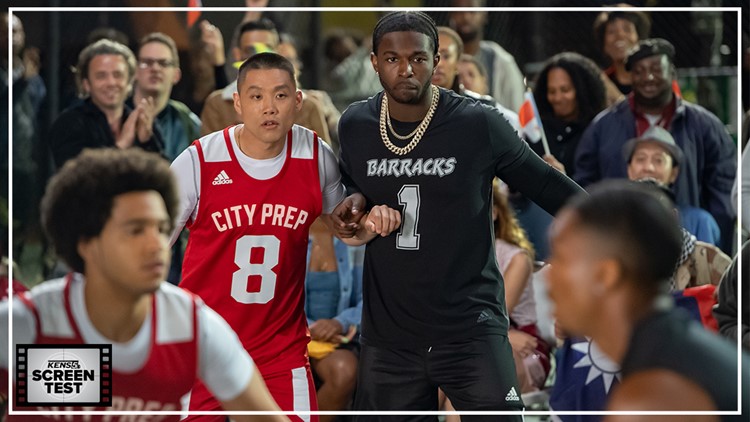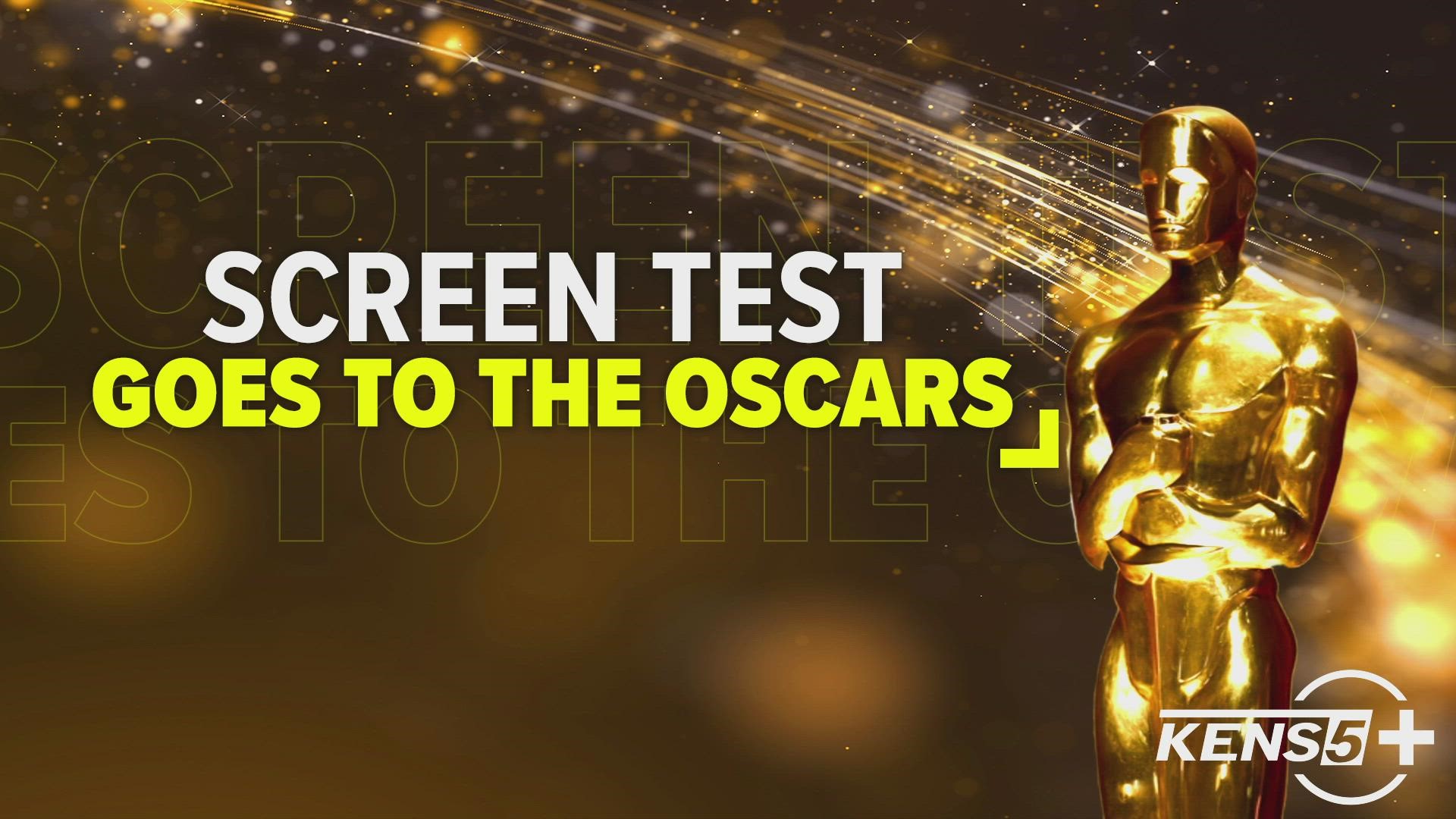[[Note: When "Boogie" releases in the U.S., it will largely be at indoor movie theaters during the ongoing coronavirus pandemic. While the purpose of this review goes deeper than binary recommendation to discuss the film's merits as an artistic work in context of its time, we encourage our readers to continue exercising the latest safety guidelines from health authorities and consider them if and when you may decide to visit the cinema to watch this movie.]]
Whether it’s the NBA, Duke or an overseas professional league, Alfred Chin — Boogie, as his friends call him — is talented enough on the basketball court to go anywhere. Or so we’re told. In what becomes a symptom of a story defined by how jaggedly undefined it is, Eddie Huang’s first feature directorial effort, “Boogie,” takes a while in getting around to show Alfred slamming down a dunk or making a good pass.
Instead, the movie establishes a sense of prophecy for Alfred (Taylor Takahashi, making his acting debut), and for itself; we’re meant to infer his skills are admirable enough to justify his parents transferring him to City Prep High School, where he’s more likely to be noticed by the big-time college recruiters making their way through New York City looking to grant young hoopsters their big shot. Whether they can overlook how self-absorbed and hot-headed Alfred tends to be on the court is where we’d expect “Boogie” to stake out fertile dramatic ground, but even more pressing is how Huang will be able to center that storyline amid a tangled thicket of clumsily applied high school tropes—Alfred’s sarcastic cheekiness in the classroom and his stony stares at Taylour Paige’s Eleanor, sitting a few desks away, to name just a couple. Here is yet another high school halls-set story that thinks the only book ever written was “Catcher in the Rye.”
But maybe we’re starting off being a bit unfair to Huang, whose opening frames – set 18 years before we see Alfred at City Prep – provide a hint as to the film’s narrative priorities and emotional underpinnings. “Boogie” begins inside a fortune teller’s abode in the Queens neighborhood of Flushing, where a young Chinese-American couple – Alfred’s father and pregnant mother – are seeking guidance. Should they try and make it work with each other, despite how prickly their relationship is? Fast-forward to the present-day, where they are still together...and just as likely to engage in shouting matches as they consider Alfred’s best options. The complicated dynamic begs the question: Who’s more invested in Alfred reaching his full potential? And are they invested for the right reasons, or merely desperate to justify staying together to raise him?
Intriguing entry points for a story about inherited selfishness and learned selflessness, sure, and one that’s given a sharper texture as Huang occasionally pivots towards examining how Alfred’s background makes his journey even steeper (“We can clean, cook and count real good, but for everything else, we’re picked last,” Mr. Chin (Perry Yung) says). But too often, “Boogie” clogs those access points with problems major (a lack of nuance, Takahashi’s two-note performance) and slightly less major (overuse of its score, awkward pacing), relegating the Alfred-mom-dad dynamic to the same dramatic wavelength as other, more minor plotlines. Inevitably, the most interesting parts of the premise end up feeling as raw as Alfred’s skills.
The film’s issues splinter from a central glaring flaw: As the stuffed plot makes a fuss out of Boogie not knowing what he wants, neither, seemingly, does Huang. Instead, “Boogie” disappointingly seems keen on distracting itself, awkwardly jostling between the cliched and more interesting pieces of its narrative in a way that makes every relationship feel tangential to the next. It doesn’t help that Huang’s first feature screenplay too often takes shortcuts shortchanging the tension; Boogie and Eleanor jarringly go from being flirty frenemies in one scene to practically dating the next, and the movie’s climactic montage of basketball play laughably transitions to an outside court in a lazy bit of dramatically weightless plotting.
The blending of underdog cliches and sports-centric stories has long been a reliable formula at the movies, but “Boogie” feels like an updating of the low-key caliber of melodramatically inspirational sports drama that was all the rage in the 2000s, the kind of movie last year’s “The Way Back” paid homage to. While barely a dozen Asian Americans have ever reached the hardwood of an NBA game, the years since “Glory Road,” “Coach Carter” and “Like Mike” saw Jeremy Lin, a California-born player of Taiwanese descent, take the league by storm—an underdog movie of defying stereotypes and reaching overnight fame playing out in real life. You can be sure that Linsanity is referenced early in “Boogie,” which is ultimately less concerned with where Alfred is going than where he’s coming from. That’s an intriguing angle in theory, not just because the NBA’s history is nearly devoid of Asian American representation, but because sports stardom – as with any kind of celebrity – tends to construct new identities for those who reach it. What was once foundation may now seem foreign.
But as Alfred falls into trite romance with the vastly underdeveloped Eleanor and explores the streets of Flushing with his Dominican buddie Richie, the moments that find Huang anchoring his protagonist’s perspective at all are either fleeting or prone to flat characterization. The movie sees Alfred’s father declaring “Chinese people could be so much more if this country didn’t reduce us down to beef and broccoli,” but Huang’s own efforts to expand the story’s cultural touches are minimal. More than once we see Alfred instinctively offer to pour tea for his elders – “I’m the youngest, I should do it” – and these scenes suggest a compelling contradiction between the respect he’s been taught to show to those older than him and the parts of him desperate for personal autonomy.
That thread never fully winds into something interesting. How can it when “Boogie” insists on establishing an unenergetic rivalry between Alfred and another star player, a relationship rooted in an initial staredown that we don’t know whether to interpret as antagonism or mutual respect? That the film adheres to a checklist of things we’ve seen done (and done better) dozens of times before is unfortunate when Huang is clearly motivated by ideas and complexities teasing a new filmmaking voice to pay attention to going forward. There’s a fairly strong sense of place in “Boogie,” but when it comes to establishing a strong sense of emotional position for its title character, it’s far too easy to call foul.
"Boogie" is rated R for language throughout including sexual references, and some drug use. It's now screening in some San Antonio theaters.
Starring: Taylor Takahashi, Pamelyn Chee, Jorge Lendeborg Jr., Taylour Paige
Directed by Eddie Huang
2021
MORE REVIEWS:
- 'Lucky' Review: New Shudder offering constructs a gaslighting prison from modest but piercing genre-subversion
- ‘Raya and the Last Dragon’ Review: Disney Animation's latest is a dazzling, thoughtful adventure
- ‘Tom and Jerry’ Review: A bare minimum, barely reached
- ‘Cherry’ Review: The Russo Bros. trade MCU superheroism for gritty superficiality
- ‘Nomadland’ Review: Frances McDormand ventures west in a lament and tender celebration of America’s final frontiers
- ‘I Care a Lot’ Review: Rosamund Pike creates a startup out of con artistry in mishandled thriller
- ‘Judas and the Black Messiah’ Review: True-life treachery within the Black Panthers’ ranks



